The School of Engineering at Brown University announces the hiring of five new faculty members over the next three years to continue the growth of the School in strategic areas of research. This expansion, which includes Assistant Professors Peipei Zhou, Mehdi Saligane, Joy Zeng, Leo Kozachkov and Indie Garwood, is the largest cohort of new faculty members recruited at once since 2013. With expertise in electronic design automation, precision medicine, electrocatalysis, sustainable fuels, neuromodulation, dynamical systems, neuroAI and cross-disciplinary applications of integrated circuit design, these faculty are striving to create innovative solutions to better the ways we live and work in the world.
“We are thrilled to welcome these exceptional scholars to Brown and the School of Engineering,” said Sorensen Family Dean of Engineering Tejal Desai. “They are all emerging leaders in their fields and will enhance our excellence in research and teaching in areas ranging from human-machine interfaces to sustainable energy.”
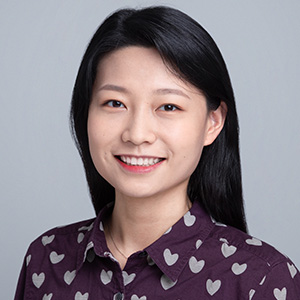
Currently a tenure-track assistant professor in the Department of Electrical Computer Engineering at the University of Pittsburgh, Zhou will join the faculty in September 2024. She received her Ph.D. in computer science (2019) and M.S. in electrical and computer engineering (2014) from UCLA, and her B.S. in electrical and computer engineering (2012) from Southeast University. Her research investigates customized computer architecture, programming abstraction, and electronic design automation for applications including healthcare, e.g., precision medicine, and artificial intelligence. She has published in top-tier Institute of Electrical and Electronics Engineers (IEEE)/Association for Computing Machinery (ACM) computer system and electronic design automation conferences and journals including: the Field-Programmable Gate Array conference, the Field-Programmable Custom Computing Machines conference, the Design Automation Conference, the International Conference on Computer-Aided Design (ICCAD), the International Symposium on Performance Analysis of Systems and Software (ISPASS), the Transactions on Computer-Aided Design of Integrated Circuits and Systems (TCAD) journal, the Transactions on Embedded Computer Systems journal, the Transactions on Design Automation of Electronic Systems journal, and IEEE Micro. Her work won the 2019 IEEE TCAD Donald O. Pederson Best Paper Award. Other awards include the 2023 ACM/IEEE International Green and Sustainable Computing Best Viewpoint Paper Finalist, the 2018 IEEE ISPASS Best Paper Nominee, and the 2018 IEEE/ACM ICCAD Best Paper Nominee.
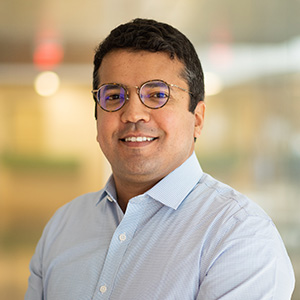
Saligane is a research faculty member and lecturer at the University of Michigan. He is also the co-founder and CTO of a biotech startup in stealth. His research interests include low-power and energy-efficient integrated circuit (IC) design, biosensors, open-source electronic design automation, and analog and mixed-signal IC design automation. He was the recipient of the Google Cloud Research Innovators Award in 2023, and the Google Research Faculty Award in 2021. Saligane currently chairs the Analog Working Group, serves on the Technical Steering Committee at the CHIPS (Common Hardware for Interfaces, Processors and Systems) Alliance, and is a technical member of the Solid-State Circuits Society’s (SSCS) open-source ecosystem (TC-OSE) of IEEE. He is also the co-founder and organizer of the SSCS Code-a-Chip Notebook Competition at the International Solid State Circuits Conference and Very Large Scale Integration Symposium and the SSCS Chipathon Design Contest. He will join the faculty of Brown Engineering on July 1, 2025.
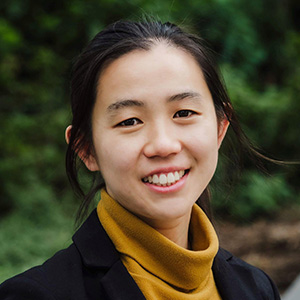
Zeng is a postdoctoral fellow in the Department of Chemistry and Chemical Biology at Harvard University, where she is studying biomimetic metal clusters with Professor Theodore Betley. Zeng obtained her B.S. in chemical engineering from Stanford, and her Ph.D. in chemical engineering from MIT, where she developed heterogeneous electrocatalysts for carbon conversion with Professor Karthish Manthiram and Professor Yuriy Román. At MIT, she was a MITEI Energy Fellow and recipient of a Mathworks Engineering Fellowship. Zeng’s lab will design electrocatalysts that address sustainability challenges such as synthesizing sustainable fuels, valorizing waste, and decarbonizing chemicals manufacturing. Zeng is particularly interested in engineering active sites that unconventionally straddle catalytic “identities” – including thermochemical vs. electrochemical, homogeneous vs. heterogeneous, and synthetic vs. biological. Zeng’s start date on College Hill is the fall of 2025.
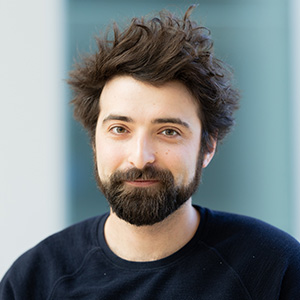
Kozachkov is currently a postdoctoral associate at MIT in the McGovern Institute for Brain Research. He will join the Brown Engineering faculty with an appointment in the Carney Institute for Brain Science in the fall of 2025. Kozachkov completed his Ph.D. in the department of brain and cognitive sciences at MIT in 2022, after an undergraduate degree in Physics from Rutgers in 2016. As a computational neuroscientist, he studies how the brain works from the perspective of mathematics, computer science, physics, machine learning and artificial intelligence, using a mix of theoretical and data-driven approaches. He has developed a theoretical framework based on dynamical systems and control theory to understand the role of dynamic stability in neural computations. He has also leveraged recent advances in artificial intelligence to explore how non-neuronal brain cells, particularly astrocytes, contribute to brain functions.
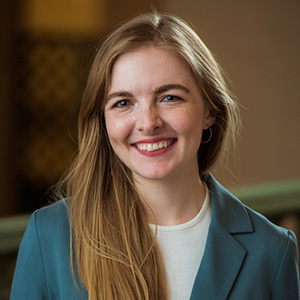
Garwood is currently a postdoctoral fellow at the University of Pennsylvania Perelman School of Medicine in the Department of Neurosurgery, where she is studying multiregional neural communication during visuomotor behavior. She completed her undergraduate work in biomedical engineering from the University of Michigan in 2017 and Ph.D. in medical engineering and medical physics from Harvard-MIT in 2023. She is a recipient of the University of Pennsylvania Provost’s Postdoctoral Fellowship, MIT MathWorks Fellowship, and NSF GRFP. During her Ph.D., she translated multifunctional fiber technology to study cortical and deep brain neurochemical signaling during altered states of consciousness. To complement technology innovation, she develops machine learning algorithms to make sense of the brain's dynamic response to local and systemic pharmacology, with the intent to discover new, safer ways to modulate and treat brain function. Garwood’s appointment at Brown begins in the fall of 2026.